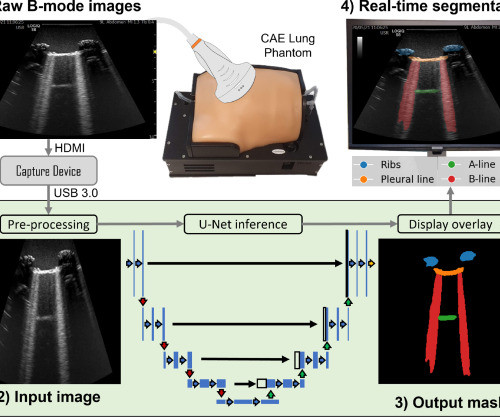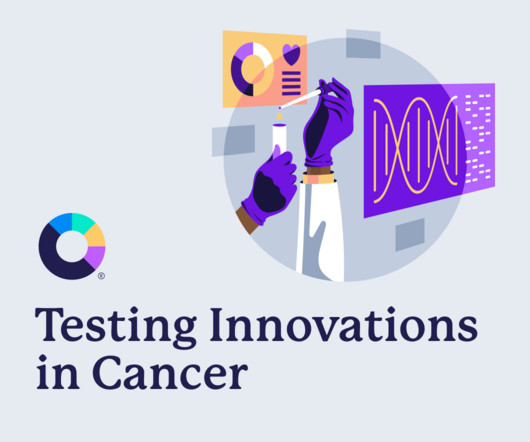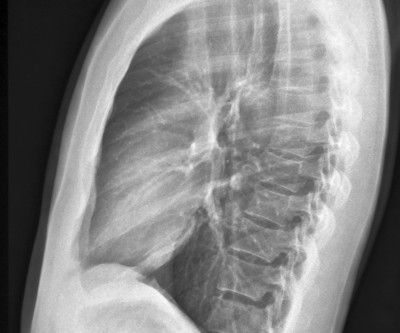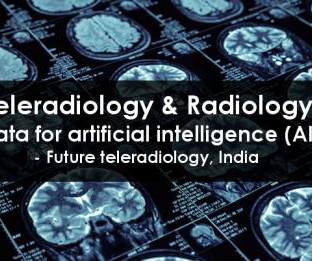Breast cancer incidence rising among women under 50
Radiology Business
JANUARY 30, 2024
This includes elevated diagnosis rates for non-Hispanic Black women in their 20s and 30s, before regular mammography screening starts.

Radiology Business
JANUARY 30, 2024
This includes elevated diagnosis rates for non-Hispanic Black women in their 20s and 30s, before regular mammography screening starts.

Imaging Technology
JANUARY 30, 2024
milla1cf Tue, 01/30/2024 - 19:43 January 30, 2024 — The largest professional societies representing radiation oncology physicians in the United States announced a partnership with the goal of reforming radiation oncology Medicare payments to expand and enhance access to high quality care for people with cancer. Leaders of the American College of Radiation Oncology ( ACRO ), the American College of Radiology ( ACR ), the American Society for Radiation Oncology ( ASTRO ) and the American Society o
This site is protected by reCAPTCHA and the Google Privacy Policy and Terms of Service apply.

AuntMinnie
JANUARY 30, 2024
Deep learning could improve real-time lung ultrasound interpretation, according to a study published January 29 in Ultrasonics. Researchers led by Lewis Howell, PhD, from the University of Leeds in the U.K. found that a deep learning model trained on lung ultrasound allowed for segmentation and characterization of artifacts on images when tested on a phantom model.

Imaging Technology
JANUARY 30, 2024
milla1cf Tue, 01/30/2024 - 19:47 January 30, 2024 — HIMSS , a leading advisor and professional society committed to reforming the global health ecosystem through information and technology, announced the launch of a new modernized Infrastructure Adoption Model (INFRAM). The newly modernized INFRAM focuses on five key domains that drive measurable contributions to the value and outcomes of healthcare organizations: cybersecurity, adoption, sustainability, performance, and outcomes.

Advertisement
Amidst rising cancer prevalence and soaring costs, new cancer technologies and innovations are emerging to support the early detection, treatment, and surveillance of cancer. Read this guide to understand how to evaluate these solutions for your employees and members – and to learn more about the current state of coverage, clinical and cost effectiveness, and impact on quality and outcomes.

AuntMinnie
JANUARY 30, 2024
AI improves chest x-ray imaging interpretation by nonradiologist practitioners, which could be useful in low-resource settings, according to research published January 29 in Chest. A team led by Jan Rudolph, MD, from University Hospital, LMU Munich in Germany found that a convolutional neural network (CNN)-based AI system focusing on chest x-rays improved the performance of nonradiologists in diagnosing several chest pathologies.
Diagnostic Imaging Brief brings together the best content for architecture professionals from the widest variety of industry thought leaders.

AuntMinnie
JANUARY 30, 2024
Endovascular thrombectomy (EVT) may be an underused procedure in patients who experience stroke during or after cardiac surgery, according to a study published January 29 in JAMA Neurology. In an analysis of patient records, EVT was half as likely to be used to treat stroke patients undergoing cardiac interventions than those not undergoing interventions.

Imaging Technology
JANUARY 30, 2024
milla1cf Tue, 01/30/2024 - 19:50 January 30, 2024 — Intelerad Medical Systems , a global leader in medical imaging software solutions, announced the appointment of three C-suite roles joining the organization’s executive team led by CEO Jordan Bazinsky. Pete Srejovic was named as Intelerad’s new chief technology officer, Vivek Rao will serve as chief customer officer, and Erikka Buracchio will assume the role of chief people officer.

AuntMinnie
JANUARY 30, 2024
FDG-PET imaging shows promise for use as a diagnostic criterion for neurosarcoidosis, with a recent case series illustrating the approach was effective when gold-standard approaches were not, according to a group of researchers in Berlin. “To date, F-18 FDG PET findings are currently not taken into account when making a diagnosis for possible, probable, or definite neurosarcoidosis,” noted lead author Jessy Chen, MD, of Charité - Berlin University Medicine, and colleagues.

Health Imaging
JANUARY 30, 2024
The German manufacturer and Canadian drug developer are partnering to address the supply crunch of radioisotopes.

Advertisement
Patient-centric scheduling can only be achieved through optimized radiology workflows, effective communications between staff and physicians, and, of course, through specialized schedulers. In this guide, we’ll take you through a step-by-step process to transform your radiology center into a high-performance hub of medical imaging.

AuntMinnie
JANUARY 30, 2024
Efforts to bring quantitative MRI analysis into clinical practice received a boost with the availability of two new Category III Current Procedural Terminology (CPT) codes for brain MRI. Effective January 1, 2024, the new codes, 0865T and 0866T, support the use of software to analyze brain MRI exams with comparison to prior studies. AI software would qualify under the Category III CPT codes, which are for new and emerging technology: 0865T -- qMRI analysis of the brain with comparison to prior M

Diagnostic Imaging
JANUARY 30, 2024
Employing reconstructed radiographs from 3D hip CT scans, a deep learning model demonstrated a higher concordance index (C index) and higher two- and three-year AUCs than multiple imaging models and three clinical models for predicting subsequent fracture risk in patients with hip fractures.

AuntMinnie
JANUARY 30, 2024
Much has been said of what AI algorithms in radiology can do and how well they have performed during their validation, but much less has been said about inevitable performance degradation over time and what to do about it. Monitoring the performance of AI algorithms is analogous to post-market surveillance, according to Stuart Pomerantz, MD, a neuroradiologist affiliated with Massachusetts General Hospital, who like others has emphasized three areas of risk in AI algorithm performance.

MedImaging Radiography
JANUARY 30, 2024
A new study has shown that AI can improve chest X-ray interpretation by non-radiologists, which can be particularly valuable in settings with limited resources.

Advertisement
About 40% of us will be diagnosed with cancer in our lifetime, and patients are getting younger. At the same time, the cost of treatment continues to rise, with employers spending 8.5% more on cancer care for each employee than they did last year. The best thing employers can do for their employees and business tomorrow is to invest in cancer detection and care today.

AuntMinnie
JANUARY 30, 2024
An almost 30-fold variation exists among radiologists when it comes to making additional CT or MRI exam recommendations for head and neck indications, researchers have found. The discrepancy appears to be linked to individual radiologist preferences rather than systemic factors, and underscores the need for quality improvement, wrote a team led by Jeffrey Guenette, MD, of Brigham and Women's Hospital in Boston.

Health IT Analytics
JANUARY 30, 2024
Researchers leveraging a machine learning-based “fragmentomics” approach may be able to detect cancer sooner using smaller blood samples than traditional methods.

AuntMinnie
JANUARY 30, 2024
AI has been a popular term in radiology for many years, with most of the field’s AI applications achieving U.S. Food and Drug Administration (FDA) approval before the widespread use of GPT-3 and GPT-4 in 2023. For many, machine learning's potential is more than just talk; the power of well-trained, image-augmented AI has already been demonstrated as a useful tool for quality control, disease tracking, tumor segmentation, and making prognosis predictions.

Radiology Business
JANUARY 30, 2024
Physicians at the Chicago institution are working over 80 hours per week while collecting inadequate compensation, organizers said.

Advertisement
Discover how Color's comprehensive care solution is revolutionizing cancer screening adherence and knowledge. Through an in-depth case study, Color's unique approach to comprehensive cancer care has shown significant benefits in increasing screening rates and enhancing patient knowledge. Participants reported a 2-3x increase in adherence to screening guidelines over just 8 weeks, with 84% of participants increasing their familiarity with timing and frequency of cancer screening.

AuntMinnie
JANUARY 30, 2024
Jacob Manning, RT, of the University of Alabama Jacob Manning, RT, of the University of Alabama has received a $10,000 research grant from the American Society of Radiologic Technologists (ASRT) to evaluate patient immobilization masks for bacteria that cause infections. Little information exists about infectious pathogens associated with thermoplastic materials used to construct masks, Manning explained, in a news release from the ASRT.

MedImaging MRI
JANUARY 30, 2024
Healthcare is now evolving towards a computer system that learns from extensive medical data such as MRI scans, biopsies, and blood test results, to offer personalized advice for patients.

AuntMinnie
JANUARY 30, 2024
RaySearch Laboratories has installed more than 1,000 RayStation cancer treatment planning systems worldwide, with the latest in a radiation therapy center in Karnataka, India. The first version of RayStation was launched in 2009 and the system is now available in cancer centers in 43 countries worldwide, the company said. The U.S. has the largest number of centers using the system, at 285, followed by Japan with around 220 centers, and China with 90, RaySearch said.

Aidoc
JANUARY 30, 2024
In this episode of “Lessons From the Inside,” Debbie Cancilla, EVP and CIO of Temple University Health System, envisions an exciting future for AI in healthcare. She emphasizes AI’s transformative role in research, clinical applications and back-office management, presenting it as a vital solution for the industry’s future. For those hesitant about AI, Debbie advises taking the first step, educating oneself and fostering open conversations.

Advertisement
Explore the latest insights from the American Cancer Society's “Cancer Statistics 2024” report, which unveils multiple alarming trends in cancer data. Cancer is on the rise among young adults, and diagnoses for 6 of the 10 most common cancers are escalating. With over 2 million new cancer cases projected in the U.S. this year, employers face increased challenges when it comes to supporting employees.

AuntMinnie
JANUARY 30, 2024
The University of Texas MD Anderson Cancer Center in Houston has signed an agreement with the International Atomic Energy Agency (IAEA) to become an IAEA Collaborating Centre. Chris McKee, senior vice president of strategy and business development at MD Anderson Cancer Center (left) and Rafael Mariano Grossi, IAEA Director General (right). The two organizations have signed an agreement that will see the cancer center become an IAEA Collaborating Centre.

Future Teleradiology
JANUARY 30, 2024
Teleradiology Companies Introduction: Chad, a nation characterized by its rich culture and unique healthcare challenges, is currently undergoing a significant transformation in healthcare delivery, with the pivotal role of teleradiology at the forefront. Teleradiology services are playing a crucial role in addressing the nation’s healthcare challenges, offering improved access to diagnostic expertise, faster diagnoses, and enhanced patient care.

AuntMinnie
JANUARY 30, 2024
AI medical device company Bot Image is highlighting the performance of its ProstatID in a study evaluating its ability to detect, diagnose, and screen for prostate cancer. The device, which has clearance by the U.S. Food and Drug Administration (FDA), evaluated biparametric MR images and achieved an area under the curve (AUC) of 0.936. The study saw 13 board-certified abdominal radiologists reading the same prostate MR image sets with confirmed biological ground truth points.

Future Teleradiology
JANUARY 30, 2024
Teleradiology-in-Flat-World Introduction: Chad, a nation celebrated for its cultural diversity and unique healthcare challenges, is on the path to bridging the diagnostic divide with the introduction of teleradiology services. These services are playing a pivotal role in addressing healthcare challenges, offering improved access to diagnostic expertise, faster diagnoses, and enhanced patient care.

Advertisement
As HR and Benefits leaders are in the midst of evaluating cancer care solutions and designing their requirements for vendors, it’s key to know what questions to ask to ensure the development of a truly comprehensive strategy: from prevention to diagnosis to treatment to survivorship. Getting to the right answers starts with asking the right questions: How can better access improve engagement?
Let's personalize your content